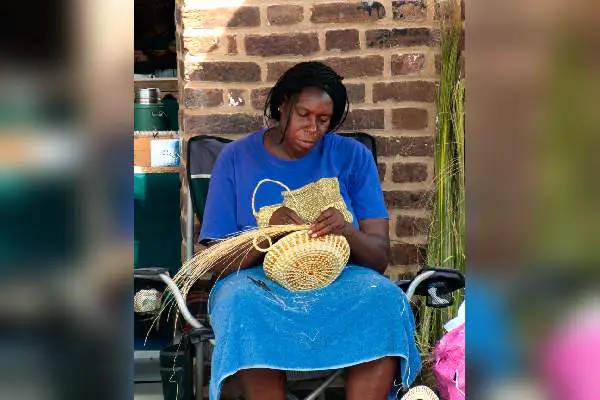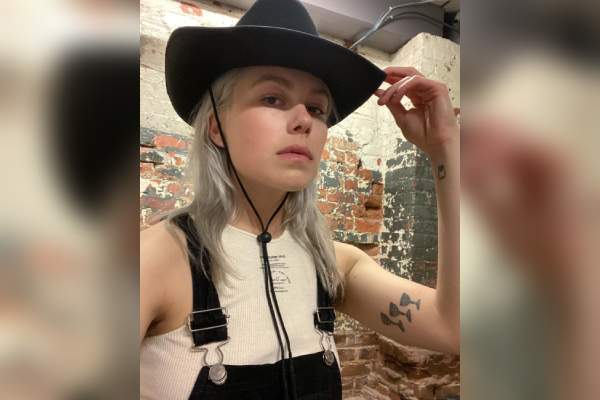Exploring The Enchanting Gullah Geechee Culture: Preserving Values And Heritage

Gullah Geechee culture. Image Source: Public Domain Collections.
Today we will analyze and look into the Gullah Geechee Culture, its inception, and its whereabouts. People from the Gullah community are direct descendants of Africans who were held as slaves on the plantations along the lower Atlantic coast. Their language, Geechee, is a combination of English, French, and Dutch dialects. The community is unique as its connection is a shared culture that began to form in the 18th century.
Preserving ancestors’ culture and heritage is very important as it is a source of identity. For many years, a huge number of Gullah Geechee people lived in isolation on the Sea Islands coast of South Carolina and Georgia. For generations, the vibrant and unique community has maintained its shared culture through music, language, religion, cuisine, and knowledge of the land and sea.
The composition of a multitude of traditions explores the alluring Gullah Geechee culture, slipping light on its history, values, and ongoing struggles to save its rich heritage. Stay with us to learn more about one of the most historical cultures.
The Origins of the Gullah Geechee
There are a few speculations regarding the origin of the word Gullah. As per some scholars, it might be associated with the name Kongo, the former kingdom of West Africa, where some of the Gullah people originated. Similarly, some scholars believe the word may have come from Gola, an ethnic group who were enslaved ancestors of the Gullah people.
The Gullah Geechee are descended from West and Central Africans who were transported as slaves to North Carolina, South Carolina, Florida, and Georgia in the lower Atlantic.
The culture traces its roots back to the transatlantic slave trade, which forcefully brought millions of Africans to the props of North America. The enslaved Africans brought with them different verbal, artistic, and religious practices, which, over time, intermingled with the rudiments of European and Native American influences.
Language and Communication
One of the most distinctive aspects of Geechee culture is the Gullah language, the Creole language derived from colorful West African languages, English, and other original dialects. The lingo has significant influences from African languages in grammar and sentence structure.
The language, characterized by its unique syntax, vocabulary, and pronunciation, serves as an important link to the African heritage. It is an integral part of the artistic identity of the Gullah Geechee people. The Gullah people are known for preserving most of their African dialects and cultural heritage more than any other African-American groups in the United States.
The folklore, cuisine, music, crafts, farming, and fishing traditions of the Gullah people all show substantial traces of West and Central African influences. Despite external pressures, efforts are being made to save and promote the Gullah language, as it encapsulates the substance of the culture and connects generations.
ALSO READ: The Inspiring Story of How Henrietta Wood Sued Her Enslaver
Traditional Beliefs and Customs
Gullah Geechee’s culture is deeply embedded in church, myth, and traditional beliefs that have been passed down through generations. Ancestral respect plays a significant part in their religious practices and rituals. These practices reflect a blending of African church and Christianity, demonstrating the adaptability and rigidity of the Gullah Geechee people in conserving their artistic heritage.
The enslaved Gullah-Geechee culture developed as a Creole culture in the colonies and the U.S. from people of many different African cultures. By the mid-18th century, thousands of acres in South Carolina, Georgia, and the Sea Islands were developed as African rice fields. Over time, the Gullah people expanded a culture in which significant portions of African languages, traditions, and communal life were retained. Compared to the culture of enslaved African Americans in states like North Carolina, their development was distinctive.
Art, Music, and Cuisine
The cultural expressions of the Gullah Geechee people are vibrant and different, encompassing colorful forms similar to handbasket weaving, crockery, packing, and wood figure. These crafts serve as visual representations of their artistic identity and literal heritage. The local Gullah families are experts in making sweetgrass basket weaving, the official craft of the state of South Carolina.

Gullah Geechee culture. Image Source: Wikimedia creative commons.
Gullah Geechee’s music, including canticles, work songs, and “crying,” evokes an important sense of emotion, echoing the jests and struggles of the community. The Gullah music is rooted in blue notes, which later served as a basis for American music, including jazz, blues, and gospels.
The Geechee cookery is a succulent mix of African, European, and Native American influences. Similarly, the Gullah people brought the cuisine of countries like Sierra Leone, Guinea, and Liberia using recipes rich in seasonal and farm-fresh ingredients. Known for its distinctive flavors and constituents, similar to okra, rice, seafood, and a variety of spices, Gullah Geechee cookery reflects the emulsion of culinary traditions and the significance of food as a collaborative bond.
Similarly, Emily Meggett, a southern home cook, became one of America’s most important Geechee cooks and published a best-selling cookbook on Geechee cuisine titled Gullah Geechee Home Cooking: Recipes from the Matriarch of Edisto Island.
Conserving Heritage and Overcoming Challenges
Throughout history, the Gullah Geechee culture has faced numerous difficulties, such as racial prejudice in institutions, demanding economic circumstances, and the problem of artistic elimination. However, dedicated individuals and organizations have emerged as the culture’s protectors, working lifelessly to preserve and promote its ideals and traditions.
Several community-based organizations, artistic festivals, art exhibits, and educational organizations have been crucial in promoting mindfulness and ensuring the Geechee culture’s survival. In June 2023, a new cultural heritage center was established at Georgia Southern University, Savannah, with several art crafts and history books to read. Similarly, U.S. Senator Jon Ossoff is also working to protect the Gullah communities from sea-level rise and storm surge.
The Gullah Geechee Cultural Heritage Corridor, created by the United States Congress, provides a platform for the conservation and sustainable growth of the culture, emphasizing the significance of protecting sacred sites, maintaining environmental integrity, and fostering lucrative possibilities for the Gullah Geechee people. The corridor is a collection of small coastal communities from North Carolina to North Florida.
The historic Gullah Geechee corridor includes a 475-mile coastal land and islands. In 2006, the US Congress designated it a national heritage site. It was established by the U.S. Congress to recognize the unique culture of the Gullah Geechee people. More than 200,000 Gullah Geechee people still live in the corridor along the Sea Islands.
You might want to read about the Great Onion Debacle.
Gullah Geechee Culture and Nature Festival
The people on the Atlantic coastline experienced the vibrant Gullah and Geechee cultural and nature festival in June 2023 after 30 years. The festival, full of culture and tradition, was filled with speakers, singers, and dancers, which gave an opportunity to learn about the Gullah Geechee culture.
From their distinguished language to their high-spirited cultural aesthetics, the Gullah Geechee people have maintained a legacy that resonates with their ancestors and inspires generations to come. By embracing their history, celebrating their present, and working towards a sustainable future, the community ensures the preservation of their cherished traditions and values.
Atlantic Beach Gullah Geechee Festival kicks off this weekend. (2023, June 23). https://www.wmbfnews.com.
Brown, D. L., & Fischer, H. (2023, April 13). White Gold from Black Hands: the Gullah Geechee Fight for a Legacy after Slavery. The Guardian.
Mufwene, S. S. (1998, July 20). Gullah | History, Culture & Dialects. Encyclopedia Britannica.
Staff, V. (2022). Celebrating Gullah Geechee Culture in South Carolina. Vacationer Magazine.
Podcast, T. N. E. N. (2021, December 16). Preserving the Language, Land, and Heritage of the Gullah Geechee People. Medium.
Contributors. (2017, December 29). The Black church isn’t one-dimensional either: How Gullah-Geechee people subvert Christianity to retain Black history – The Black Youth Project. The Black Youth Project.
U.S. Senator of Georgia Jon Ossoff. (2023b, May 3). Sen. Ossoff Working to Protect Gullah Geechee Communities from Coastal Flooding & Sea-Level Rise – U.S. Senator for Georgia Jon Ossoff. U.S. Senator For Georgia Jon Ossoff.
Did you notice an error ?
Please help us make corrections by submitting a suggestion. Your help is greatly appreciated!











